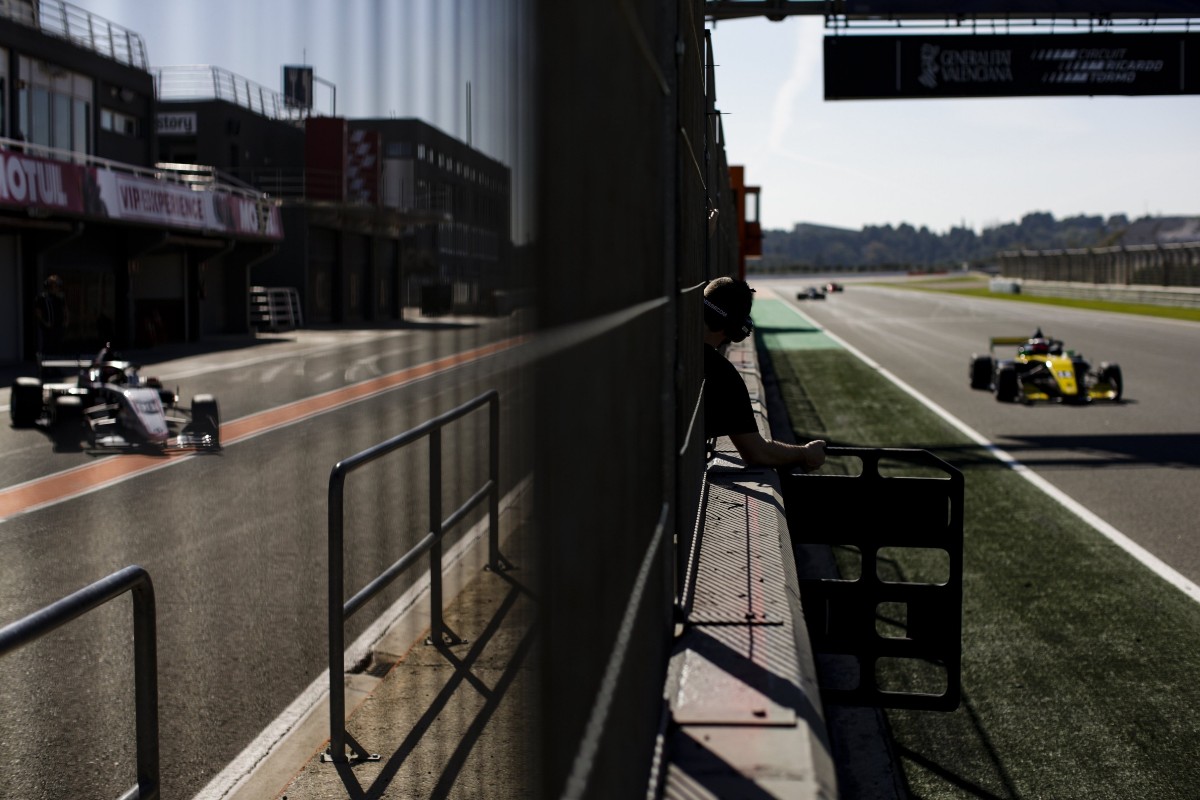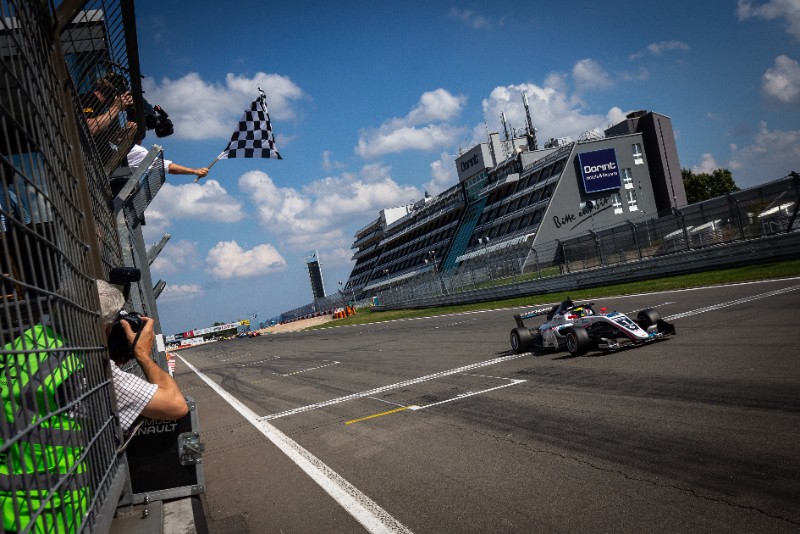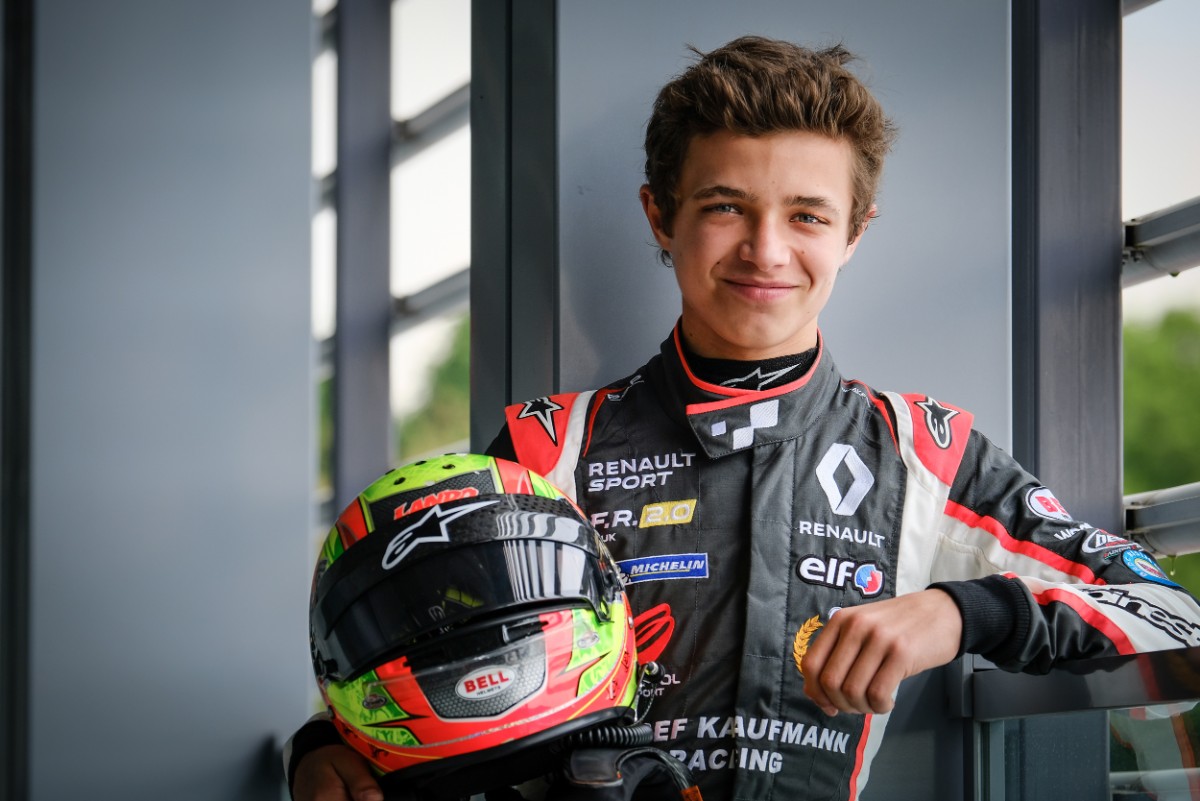
Renault has already been burned once by an FIA decision in regional Formula 3, and has managed to avoid being caught out a second time by preventing the Formula Renault Eurocup’s superlicence points being reduced
In June 2018, Formula Scout became aware of meetings taking place between the FIA and Renault about turning its long-running Formula Renault Eurocup series into a regional Formula 3-spec series. It was an unexpected move, but at the time the FIA was increasing its influence on the structure of junior single-seaters, and series needed to protect their interests.
Two months later, Renault submitted its tender to the FIA to run Europe’s official regional F3 series as a replacement to the existing Eurocup. By the time it had revealed its Renault-powered Tatuus F3 chassis, the FIA had already opted for the tender from Automobile Club d’Italia and Italian Formula 4 promoter WSK.
Renault committed to the regional F3 move regardless, and most of its teams immediately came with it, and it meant the Eurocup name would continue. Its response to being snubbed by motorsport’s global governing body was to go bigger and better than ever before by adding Abu Dhabi to a 10-round 2019 calendar featuring nine current F1 tracks and working hard at promoting a series that was without the free-to-enter World Series by Renault bill of old. Being a regional F3 series more importantly also boosted the increasingly important FIA superlicence points available to drivers.
The increased budget and uncertainty about switching from FR2.0 regulations to regional F3 led to a few teams jumping ship, but new ones joined and there is a big-name returnee this year in ART Grand Prix. Of the ones that did leave, their fears were proven correct when deliveries of the Tatuus chassis ended up being last-minute and leading to a stressful 2019 pre-season.

Photo: Renault Sport / DPPI
What followed was a season of racing with strong reliability, a dramatic title fight between R-ace GP’s Oscar Piastri and MP Motorsport’s Victor Martins that also decided which would be a Renault Formula 1 junior in 2020, and a regional F3 series that could actually fill a grid of 20 cars. The ACI series peaked at a grid of 15, while America and Asia’s efforts hit 13 and 18 respectively. W Series managed 20 in its final race, but all drives there were free, and the Eurocup was on 22 cars from the off.
While not as strict on testing as an FIA championship, Renault discouraged private testing in-season by extending the length of some weekends to hold test sessions, and laid out an out-of-season test window within the FIA’s remit that effectively sped up the signing of drivers. One thing teams did want is more power from the engine, and because the Eurocup is not the FIA’s regional F3 series it has the freedom to do so as long as it remains in the power-to-weight window below the FIA Formula 3 Championship.
“If we want tomorrow to have 350bhp, we could. Especially since this engine is the Megane R.S.01, so we know that it’s good for more than 300, 320bhp,” Renault Sport’s sporting manager Tarik Ait Said tells Formula Scout.
Renault has enabled greater performance to be extracted from its turbocharged 1.8-litre engine for 2020, with upgrades and mapping changes that ‘rebalances the power in accordance with the federal authorities’ requests’. Combined with a tie-up with lubricant brand Castrol and new tyres from Hankook, there could be improvements of ‘up to two seconds per lap’.
It responds to teams’ requests, and in a balanced way as there is nothing to be gained in seeking FIA F3 or even Euroformula-matching pace. The series has its own strengths, including a grid of top drivers. Lessons have been learned from when FR3.5 started losing its battle with GP2 in the mid-2010s (the FIA staunchly supporting its rival), and Renault left its own series.

The biggest threat of them all to the Eurocup this year is of course the global COVID-19 pandemic, and Renault was one of the first in motorsport to respond to the oncoming threat. It revamped its FR Asiacup calendar back in Februrary, and postponed its Eurocup season opener at Monza to summer not long after. Hockenheim was added in place of the soon-to-be cancelled Monaco in early March, with two pre-season tests being called off the week after. The month ended with Motorsport UK taking actions that meant the Silverstone round was postponed, and Paul Ricard is also understood to be delayed to a later date.
Given the head start on its rivals, Renault already has a current response plan and a back-up plan to that that ensures there will still be 10 rounds, and it is cooperating with national federations to see how it can support its teams as they face up to financial difficulty while racing isn’t going on. Sporting matters such as the impact on superlicence points if several teams do go under is for discussing further down the road, despite Renault’s recent success in getting a points reduction overturned.
“The important thing is that the teams know, the drivers know, so they can adapt to the situation,” Ait Said added. “It’s really important in what we’re going through right now that we preserve the teams, because they’re the ones who may suffer financially. It’s really important that we give enough info for them to organise themselves, and be in good health when everything restarts. This is our main focus right now.”
Of any series right now, the Eurocup is the most likely to run its calendar in full and with all of its teams. If anything, its superlicence points should not have been dropped to 15 to be level with W Series in the FIA’s December decision, but increased to the same as ACI/WSK’s Formula Regional European Championship that awards 25 points to the champion.
FREC is supposedly Europe’s top third-tier single-seater series, but races primarily in the COVID-19-bruised Italy and attracts small grids of varying quality. Its rescheduling will likely have it joining up with the ‘lesser’ Eurocup and Euroformula.

While they can’t explicitly be put together as cause and effect, FREC missed the superlicence eligibility criteria in 2019 and all of the rulings it failed on were rewritten for this year. Rather than use the superlicence system to reflect the strength of series and their significance on the route to F1 – 14 of F1’s 20 current drivers raced in the Eurocup – the FIA instead punished not only good racing series but good business models. Motorsport is business, and as such any decisions which so blatantly only assist one ‘firm’ in the market need to be scrutinised.
“Following the reduction in points that we had in December, we asked the FIA for clarification about the different things regarding the points, like what was necessary to have these lower points, what was their reason?” said Ait Said.
As it turned out, the FIA’s December decision didn’t stand up under pressure and Eurocup’s points reduction was reversed.
“There was a vote, and they went back on their decision and reinstated the number of points we already had. So for the winner of the Formula Renault Eurocup we are back to 18 points.
“There was no reason actually why our points should drop to equal the points that other championships have like Super Formula Lights or W Series. It’s not the same level of championship when you consider all the factors. I think to reconsider probably what they did is they likely they saw the championship from their point of view, and then we had to clarify, taking all our points. They reconsidered it and saw our championship was positioned at the right level in 2019.”
Euroformula tried a similar strategy of appeal, as it is introducing a new faster halo-shod Dallara 320 car, built to current F1 safety standards, for 2020 and adding the historic Medditeranean Grand Prix alongside the Pau Grand Prix on its calendar. It was not successful, and remarkably it, IndyCar’s primary feeder series Indy Lights and Super Formula’s Dallara 320-using primary feeder series SF Lights (nee Japanese F3) will all be awarding an equal amount to W Series.
At least Renault avoided a second snub in the space of two years.